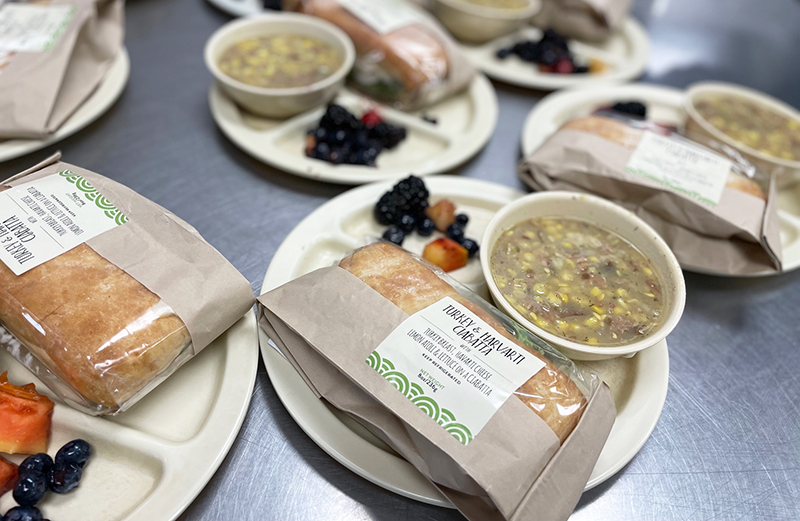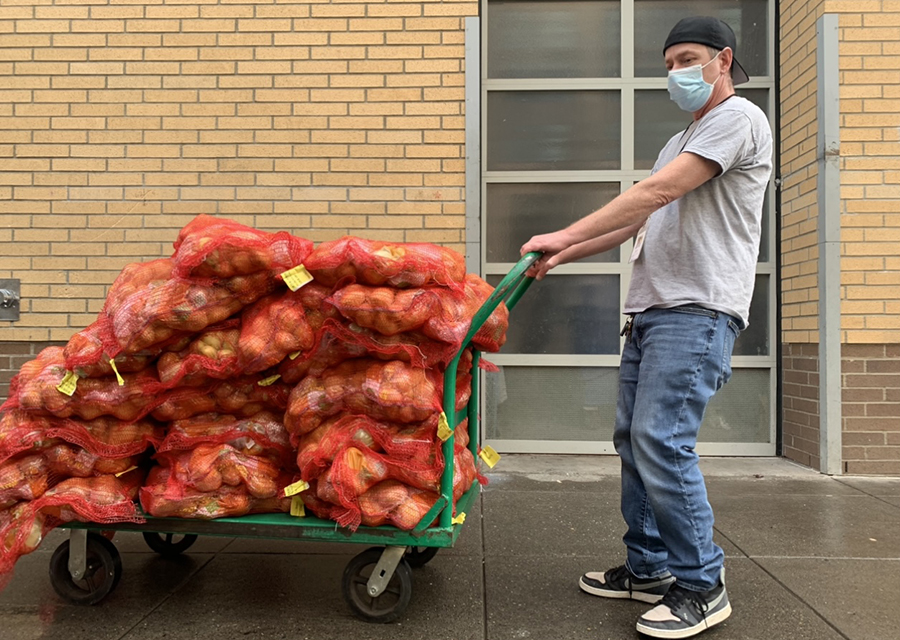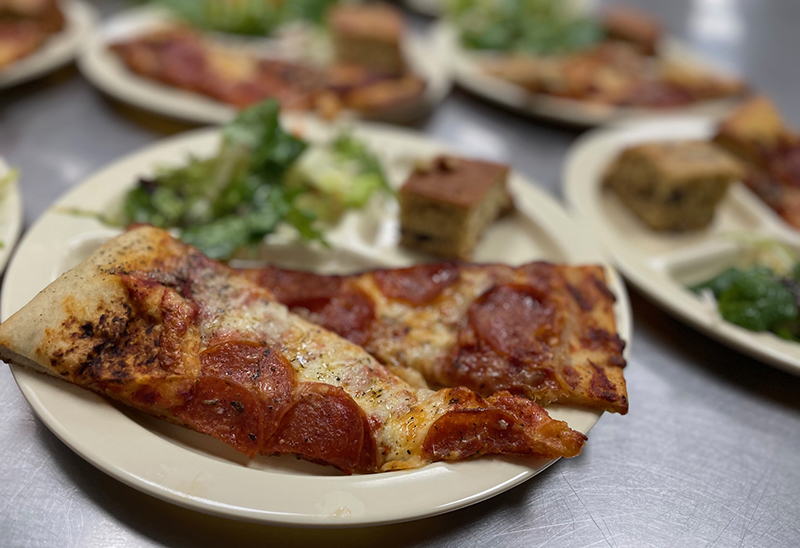At Blanchet House, we address the growing need for free, nourishing meals while practicing sustainable practices for food waste prevention.
By Julie Showers
Every day, perfectly good food is tossed in the garbage while thousands of people go hungry. It’s a problem of access. An event caterer may find itself with 500 uneaten sandwiches, but how does it get them to hungry people in need? Fortunately, Blanchet House’s food waste prevention initiatives are keeping tons of edible food like those sandwiches out of landfills and getting them to people experiencing hunger and homelessness.
With millions of tons of edible food discarded annually, and the population of people experiencing hunger increasing, the need to prevent food waste has never been more urgent. In 2022 alone, 49 million people turned to food assistance services for help according to Feeding America.
Blanchet House, a proud member of the Zero Food Waste Coalition, has been at the forefront of the struggle to lessen food waste and hunger. The organization has been rescuing surplus food from businesses, homes, and grocery stores for decades. It began as a humble way for a small nonprofit soup kitchen to keep food expenses low but has evolved into a commitment to make a bigger positive impact on the community and environment.

Surplus catered sandwiches were donated from an event held at the Oregon Convention Center. Blanchet House was able to collect them and then serve people experiencing hunger and homelessness on the same day.
Innovative approaches like Blanchet House’s food rescue program offer a template for others to practice food waste prevention. By taking in surplus food from restaurants, grocery stores, wholesalers, and other sources that would otherwise go to waste, Blanchet House redistributes food to peer groups and individuals dining in its free cafe. Blanchet House’s chefs create menus based on the ingredients donated on a certain day and fill in with purchased products.
Blanchet House offers a lifeline to individuals facing economic hardships, enabling them to redirect scarce funds towards other essential needs such as housing and healthcare. Plus, rescuing surplus food diverts it from landfills to help mitigate climate change and conserve valuable resources.
Scraps for Animal Feed Aid Food Waste Prevention
But Blanchet House doesn’t stop there.
Astonishingly, Blanchet House turns leftovers and food scraps into animal feed, closing the loop on the zero food waste cycle. After every meal service in its free cafe, volunteers knock plates into bins designated as slop for animals. Along with the slop, the chefs and kitchen crew collect food scraps as they prepare thousands of meals daily using many rescued ingredients.
The food waste and slop is distributed weekly between two local farms, one being Blanchet Farm in Carlton, OR, which is operated by Blanchet House. The sheep, pigs, goats, chickens, and ducks living at the farms eat an average of 63 tons of food waste annually. Using food waste for animal feed helps to preserve natural resources like fresh water and arable land needed to grow other forms of feed.

A pallet of surplus onions taken in by Blanchet House is shared with a partner aid group for food waste prevention.
Fostering Community Engagement through Food Rescue
Food waste prevention efforts can foster community engagement and participation. Businesses benefit by donating their soon-to-expire food to make way for newer products, saving them money on waste hauling, and their donations resonate favorably with customers.
A local collective of nonprofit aid groups who do not have the capacity to take in tons of food count on Blanchet House as a hub to pick up rescued produce, meat, dairy, and dry goods. This system has created a network of partner organizations engaged in food waste prevention and helps good food reach further into marginalized communities. It should be noted, that the time it takes employees and volunteers to collect, sort, and distribute surplus food must be budgeted for if this waste prevention model is to be successful.
Food rescue initiatives like those championed by Blanchet House illuminate the need for systemic change in addressing food waste. While grassroots efforts are important, systemic solutions such as policy reforms, and laws to incentivize food donations are essential to increasing participation. Investments in infrastructure are critical for scaling up food rescue efforts and creating a more sustainable system. Through collaborative efforts, we can prevent waste, nourish communities, protect the environment, and build a more equitable and sustainable future.

Pizza slices rescued from local pizzerias are reheated for dinner service. Pizza night is one of the most popular meals in Blanchet House’s cafe.
Thank You to Our Partners in the Food Waste Prevention Coalition
We are grateful for the support and collaboration of our partners to end food waste and alleviate hunger. By participating in Food Waste Prevention Week and Food Waste Prevention Day, Blanchet House reaffirms its commitment to supporting systemic change. Together, we are making a meaningful difference in the lives of individuals and the health of our planet.
PDX Venues Collaborative:
– Oregon Zoo
– Portland Expo Center
– Oregon Convention Center (OCC)
– Moda Center/Portland Trail Blazers
– Levy Food
Other Local Partners:
– Wave Foundation
– Careit
National Partner:
– Compass USA














